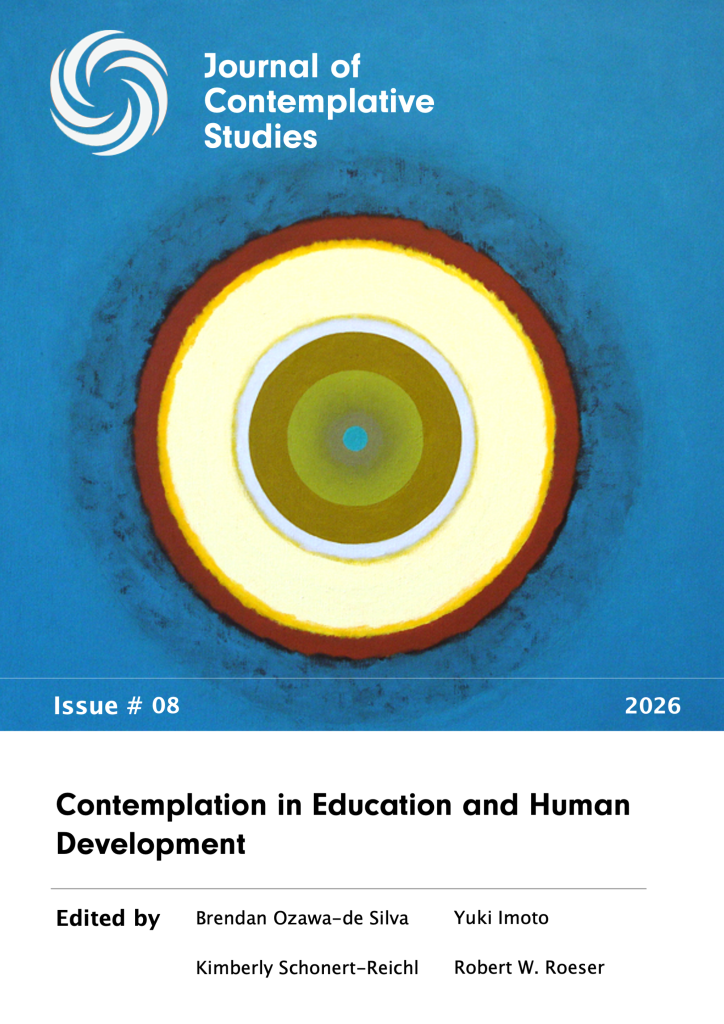The JCS Editors are delighted to announce Special Issue #08: Contemplation in Education and Human Development with guest editors Robert W. Roeser (Emory University), Brendan Ozawa-de Silva (Emory University), Yuki Imoto (Keio University), and Kimberly Schonert-Reichl (University of Illinois, Chicago).

In recent decades, Contemplative Studies has established practices including mindfulness and compassion to be legitimate subjects of academic inquiry. Much of the science and scholarship to date, however, has a developmental blind spot. Despite diversity in the age of participants studied, contemplative research has, by and large, not focused on the developmental characteristics (e.g., needs, capacities, life tasks) of individuals as critical to understanding their engagement with different contemplative practices and the impacts those practices have on different lines of human development (e.g., attentional, emotional, self). As a result, our existing knowledge base is largely adult-focused, non-developmental, and lacks intergenerational context, hindering developmentally appropriate evaluations of contemplative education approaches. Thus, our understanding of how positive qualities like focused attention, mindfulness, and compassion develop across the lifespan is limited by this blind spot.
This JCS Special Issue seeks to address this developmental blind spot by catalyzing a developmental turn in Contemplative Studies. We invite scholars to contribute research articles that attend to issues of human development in the study of contemplation and education through the incorporation of concepts of time, timescales and the lifespan generally, and specifically, through investigations that center stage-specific needs, ontogenetic (developmental) change, and generational change in the study of contemplation.
This developmental turn compels us to broaden and deepen the field of study to include diverse contemplative educational practices aimed at those of different ages. By asking how human beings mature across the full arc of their lives and what purposes contemplation might serve culturally and developmentally at distinct stages of life, we are naturally led to consider a diverse range of contemplative practices in relation to stage-related needs and capacities of individuals across the lifespan. Diverse practices like engagement in the arts, relational practices associated with parenting, teaching or spiritual mentorship, group processes and meditation, learning to be with aging and dying individuals—the full range of practices that different cultures have historically used to foster wisdom and holistic personhood become focal.
We invite original submissions in the form of research articles, reviews, and case studies from disciplines that explore topics of contemplation in education and/or human development. We are particularly interested in submissions on topics including, but not limited to:
- Relevance of critical findings in developmental science to contemplative practice and/or contemplative education at different developmental stages;
- Theoretical and conceptual foundations for developmentally appropriate contemplative education across the lifespan;
- Cross-cultural, international, and Indigenous approaches to contemplation in education and human development;
- Implementation of contemplative practices in K–12 and higher education that take developmental perspectives;
- Relationship between contemplative education and other educational initiatives (e.g., Social-Emotional Learning, character education, peace education, holistic education);
- Case studies or analyses of developmental contemplative practices in schools or other settings (e.g., families, communities, nature-based programs, athletic training);
- The use of the contemplative arts (e.g., music, movement, calligraphy, visual arts, traditional art forms) in/as contemplative education;
- Studies of contemplative education practices from non-Western traditions currently under-represented in Contemplative Studies.
The deadline for submitting an abstract (250–300 words) is October 15, 2025. Following a review of abstracts, authors will be invited to submit full articles, which will be due by February 1, 2026. All final publication decisions are at the discretion of the guest editors and executive editors of the Journal of Contemplative Studies.
Please submit all abstracts through the author portal via the JCS Submissions page. Questions should be directed to the guest editors at robert.roeser@emory.edu or the JCS Editors at contemplativejournal@virginia.edu.





